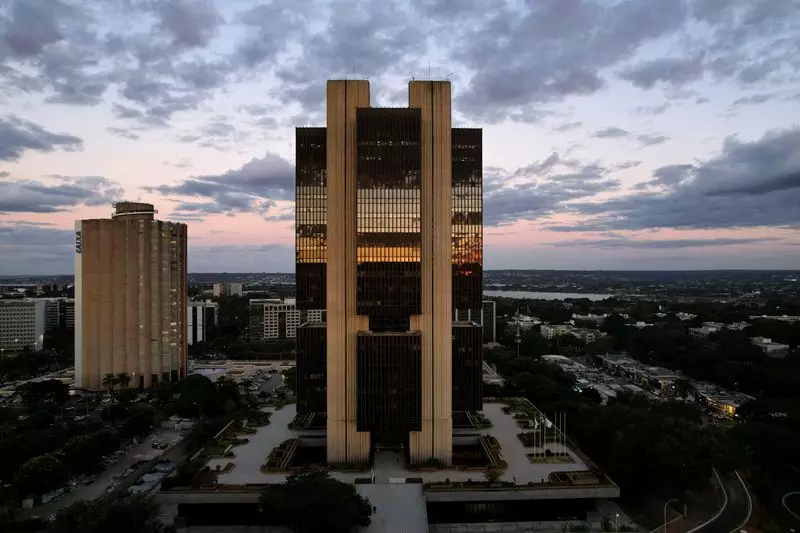Brazil’s central bank has issued a clear warning that it will not hesitate to raise interest rates if necessary to bring inflation down to its target. The minutes from its July 30-31 policy meeting revealed that the monetary authority is calling for greater vigilance as inflation expectations continue to show de-anchoring. Policymakers have left the door open for a potential rate hike in the future, despite not being committed to a specific policy strategy.
Market Reaction
Following the publication of the minutes, the Brazilian real strengthened by 1% against the dollar, and Brazil interest rate futures now indicate a 62% chance of a 25-basis-point rate hike at the next Copom meeting in September. This shift in market expectations has been driven by the more hawkish tone of the central bank, which has signaled a willingness to take action to ensure inflation convergence to the target.
Inflation Concerns
Inflation projections in Brazil have been on the rise, with estimates for 2024, 2025, and 2026 all above the central bank’s 3% target. Sticky services inflation has pushed consumer prices higher than forecasted in recent months, putting additional pressure on the economy. The central bank has highlighted that market doubts about the government’s ability to address its primary deficit have had a significant impact on asset prices and inflation expectations.
The Brazilian real has depreciated by nearly 15% so far in 2024, driven by concerns about domestic public finances and a strong U.S. dollar. The central bank has warned that these exchange rate movements could have significant inflationary impacts on the economy. Additionally, the lack of commitment to fiscal discipline could raise Brazil’s neutral interest rate, making the task of disinflation more challenging.
Despite economic and labor market indicators showing more strength than anticipated, policymakers are concerned about the process of inflation convergence to the target. The combination of rising inflation expectations, market uncertainties, and exchange rate volatility creates a challenging environment for the central bank to navigate. Tightening monetary policy may be necessary to address these risks and ensure the stability of the economy.
The threat of rising interest rates looms over Brazil as the central bank remains vigilant in its efforts to combat inflation and stabilize the economy. Market dynamics, inflation projections, and exchange rate movements all play a role in shaping the path forward for monetary policy. Policymakers will need to carefully assess the evolving situation and make timely decisions to address the challenges ahead.

